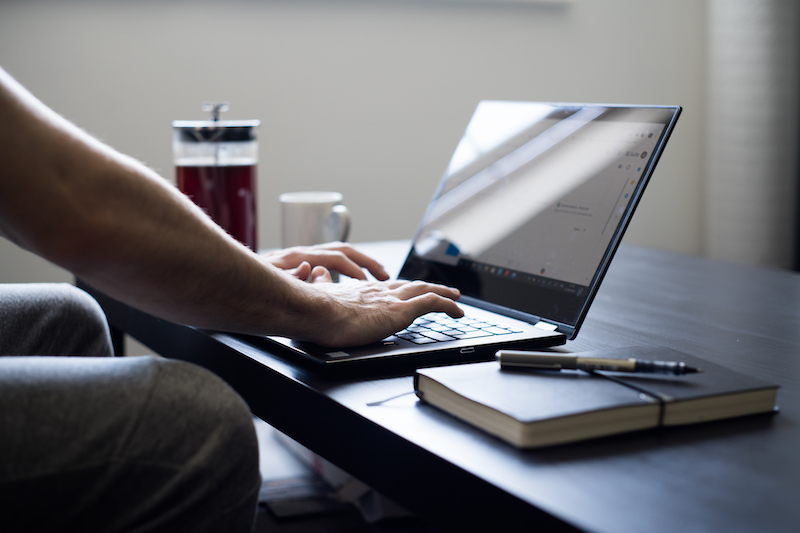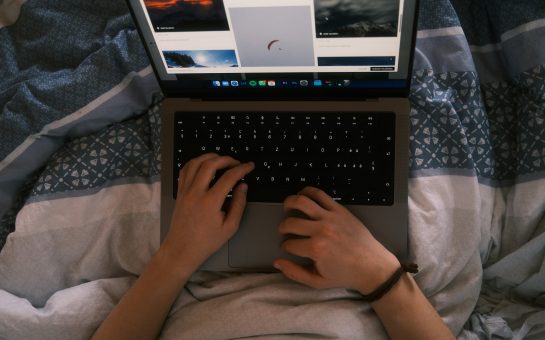Employees find they are more productive working from home than their usual workplace, according to YouGov data.
In a recent report, 60% of UK adults said they find working from home more productive than working from their usual workplace, with 17% finding it less productive.
The popularity of home working became more common during the Covid pandemic, but many assumed this would be a temporary change.
Lucy Gordon, director of Farley Cove, a financial modelling consultancy, agreed with the findings.
She said: “When you’re working in an office people come over to you a lot and disturb you.
“My mental health has massively improved. Before I left my old job, I asked to work part time from home because when I was commuting, I would have a stressful start to the day and get overwhelmed.
“I previously worked in real estate which meant I needed to be in the office as they are very old school and they found it very hard me working from home.
“I am very focused and good at getting on with the work so luckily, I don’t find jobs at home distracting.”
Just over 60% of those earning up to £15,000 are more likely to travel to work due to the type of occupation they are in, gardeners, hospitality, and retail.
On the other hand, 38% of those earning in a higher bracket of £40,000 or more are more likely to take on hybrid working.
Analysis by the ONS (Office for National Statistics) discovered employees who earn higher hourly wages tend to have the ability to work from home due to the type of profession they are in.
Whereas low earning jobs who require a face-to-face approach are less likely to work from home.
However, many employees prefer a hybrid or work from home approach to help balance both a personal and professional life.
According to the ONS, more than three quarters of home workers say they have an improved work life balance.
Common benefits of working from home included fewer distractions, quicker to complete work and improved wellbeing.
Gordon, 34, meets with another colleague who works from home, once a month, to catch up face-to-face when there is a need to collaborate.
She said: “It works well for both of us, but I can’t say it is the same for every employee.
“I am able to travel while working just like my colleague, she lives in South Africa and can now go back and forth without issues with work.
“The lack of social interaction is a downside from working from home, but I arrange to go out for lunch or a day out with my colleague.
“Working from a sofa or bed is not good for your productivity or your posture but the first thing I did was buy a screen, desk, and keyboard to stay focused.
“Working from home means I can stop and walk away from my desk, get some fresh air, get a proper break which you can’t get in an office because a lot of the time you either take your lunch while working because there is a lot to do.”
With a new approach to how we can work, it is still not on top of everyone’s list to go back to home working, with technical issues being a main factor why.
Research by OwlLabs showed 30% of office workers found building relationships with remote colleagues harder because they are unsure whether to interrupt someone who is speaking.
Moreover, 75% of workers find it hard to be part or contribute to a conversation on a Teams or Zoom meeting, making it hard to feel engaged due to a miss of social cues.
Global body language consultant Carole Railton said: “It’s really tough just talking to a screen rather than talking in person.
“I survive better when I’m around people because I need to talk and hear what they are doing.
“It’s having that communication which makes you part of society.
“I used to travel a lot for work, I’ve worked in 47 countries but due to Covid a lot of the work dried up and went on screen/ online which has really changed things for me.
“I am easily distracted working from home but the way I overcome that is to write things in my diary because it’s so easy to start doing housework.
“It brought to my attention that I need the stimulus of other people. I like the interaction and the vibe of living in central London and I thrive off that.
“As I’m at home all the time I try and get out the house for lunch or coffee, which means I’m spending more money on food than ever before.
“I would always bring a salad for lunch when I worked in an office but now, I go out and spend money on food to just meet people and get out.”
Featured image credit: Microbiz Mag via Flickr under CC BY 2.0 licence





